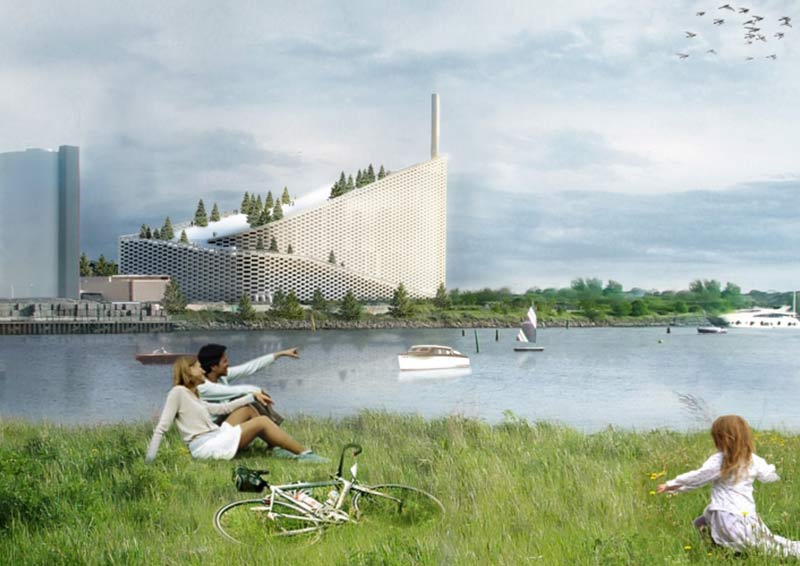Smarter future for energy
The 15th International Conference on Technology Policy and Innovation (ICTPI) attracted 150 delegates, whose interests ranged across a set of interlinking themes including smart cities, new economy, energy and data security. The conference saw a range of fascinating insights into the prospects for a smarter future for our energy system.
The four papers that were published after the conference are not narrowly technical assessments. Rather they address the role of people, policy and private companies in building a sustainable and appropriate energy system.
The first paper, by Richard Bull and Marouane Azennoud, emphasises the importance of participatory decision making (Bull and Azennoud, 2016). It makes specific reference to the case of energy-from-waste infrastructure in Hampshire, UK.
The emphasis on the importance of social factors is continued in the second paper, from Per-Anders Langendahl and his co-authors (Langendahl et al., 2016). That work considers the importance of demand-side response (DSR).
Drawing upon a series of case studies it notes that DSR can be motivated by a range of considerations including:
- Network peak management.
- Network fault recovery.
- The system integration of renewable energy sources.
One important observation in the paper is the importance of recognising that plans are always best shaped with a thorough appreciation of local circumstances.
The third paper, by Sara Lupini, stresses the importance of, and the challenges inherent in, corporate social responsibility (CSR) in the energy sector (Lupini, 2016).
She also takes a case-based approach considering the energy system (oil and liquid petroleum gas) of Belize. She surveys the issues of CSR implementation and stresses the benefits of more holistic (across both business and social value) decision-making; a process known as creating shared value.
The final paper, from Richard Snape, Peter Boait and Mark Rylatt, examines the effectiveness of two specific energy policy measures deployed in the UK (Snape et al., 2016).
The research method involves agent-based modelling and it seeks to unpick the drivers and inhibitors of the roll-out of new renewable energy technologies favoured by two different UK government policies.
The authors note that, ‘there are some differences to the economic benefits for adopters between the policies, but when analysed in terms of payback period at policy inception, the differences between technology types within the same scheme are more significant than the difference between the most attractive technologies under either scheme at the time the scheme was introduced’.
Respecting that the caveat around time of introduction is important, it is interesting to note that while policies only differed to a small degree in terms of initial attractiveness, their actual roll-outs under the two key policies varied greatly in terms of pace and scale.
It is possible to see a high level of commonality of message across the four papers presented here. All four papers remind civil engineers to consider issues beyond the narrowly technical when looking to the future of energy.
The papers presented serve as a reminder that it is important to embark on techno-social system change with an open mind and to adopt a socially inclusive deliberative approach drawing upon as wide a range of insights and perspectives as is practical.
This article was originally published here by ICE on 31 August 2016. It was written by Simon Fullalove.
--The Institution of Civil Engineers
[edit] Find out more
[edit] Related articles on Designing Buildings Wiki
- Articles by ICE on Designing Buildings Wiki.
- Buying green in the construction industry.
- Dynamic response to energy.
- Natural gas.
- Oil - a global perspective.
- Shale gas.
- Smart cities and smart energy, summary and opportunities.
- Sustainability in building design and construction.
- The effectiveness of current smart home technologies to improve energy efficiency.
Featured articles and news
Statement from the Interim Chief Construction Advisor
Thouria Istephan; Architect and inquiry panel member outlines ongoing work, priorities and next steps.
The 2025 draft NPPF in brief with indicative responses
Local verses National and suitable verses sustainable: Consultation open for just over one week.
Increased vigilance on VAT Domestic Reverse Charge
HMRC bearing down with increasing force on construction consultant says.
Call for greater recognition of professional standards
Chartered bodies representing more than 1.5 million individuals have written to the UK Government.
Cutting carbon, cost and risk in estate management
Lessons from Cardiff Met’s “Halve the Half” initiative.
Inspiring the next generation to fulfil an electrified future
Technical Manager at ECA on the importance of engagement between industry and education.
Repairing historic stone and slate roofs
The need for a code of practice and technical advice note.
Environmental compliance; a checklist for 2026
Legislative changes, policy shifts, phased rollouts, and compliance updates to be aware of.
UKCW London to tackle sector’s most pressing issues
AI and skills development, ecology and the environment, policy and planning and more.
Managing building safety risks
Across an existing residential portfolio; a client's perspective.
ECA support for Gate Safe’s Safe School Gates Campaign.
Core construction skills explained
Preparing for a career in construction.
Retrofitting for resilience with the Leicester Resilience Hub
Community-serving facilities, enhanced as support and essential services for climate-related disruptions.
Some of the articles relating to water, here to browse. Any missing?
Recognisable Gothic characters, designed to dramatically spout water away from buildings.
A case study and a warning to would-be developers
Creating four dwellings... after half a century of doing this job, why, oh why, is it so difficult?
Reform of the fire engineering profession
Fire Engineers Advisory Panel: Authoritative Statement, reactions and next steps.
Restoration and renewal of the Palace of Westminster
A complex project of cultural significance from full decant to EMI, opportunities and a potential a way forward.
Apprenticeships and the responsibility we share
Perspectives from the CIOB President as National Apprentice Week comes to a close.


























